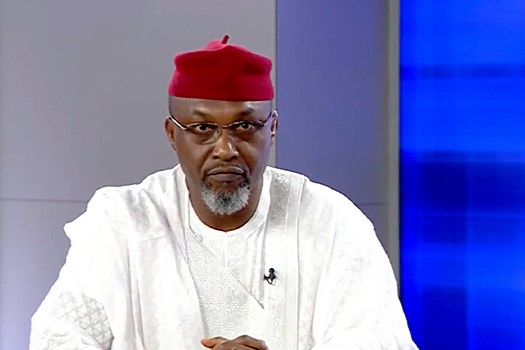Former Deputy National Chairman of the Peoples Democratic Party (PDP), Bode George, has warned the incoming Chairman of the Independent National Electoral Commission (INEC) against rigging the 2027 presidential election. He gave the warning just as the former Minister of Aviation, Osita Chidoka, emphasised the need to use technological innovations to strengthen, not undermine, the legitimacy of elections in Nigeria.
According to George, Nigeria will be “heading for hell” if INEC imposes a President and does not allow citizens to decide their leader in 2027. He issued the warning in an interview with Arise Television while discussing the speculations surrounding former President Goodluck Jonathan’s potential presidential run in 2027.
The PDP chieftain noted that Jonathan’s fate would be decided by Nigerians during the party’s national convention. He said: “Firstly, I want to plead that the new chairman of INEC must come with a conscience, because if you don’t allow Nigerians to decide and you impose, we are heading to hell. Let ït be decided by the people who they want. It is simple.”
AT another event, Chidoka noted that the Athena Centre for Policy and Leadership has concluded arrangements to launch Athena Electoral Observatory (AEO), a new platform dedicated to tracking and analysing Nigeria’s elections and also unveiled a Landmark report titled “Innovation in Electoral Technology (2015-2025): Gains, Gaps, and the Road Ahead.
Speaking at a pre-event briefing in Abuja, Chidoka noted that for over two years, the Athena Centre had established a reputation for conducting rigorous post-election audits, providing independent analysis that had shaped the debate on electoral credibility and reform.
According to him, the launch of the Athena Electoral Observatory, billed for October 6, 2025 in Abuja, is a national conversation on the future of Nigeria’s democracy, bringing together politicians, INEC officials, civil society, development partners, and security agencies, saying the event will highlight Athena’s 10-year review of INEC’s electoral technology (2015-2025), findings from stakeholder consultations with INEC, political parties, and civil society.
He explained that the report draws from three pre-event workshops held in September with political parties, civil society organisations, INEC, and development partners and also integrates findings from a nationwide opinion poll conducted by NOI Polls, offering fresh citizen perspectives on electoral technology and trust ahead of the 2027 elections.

